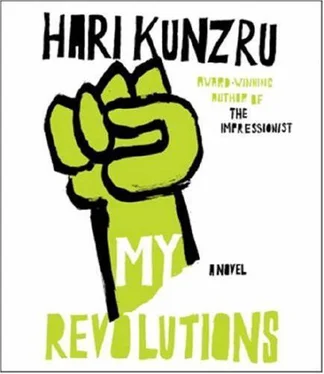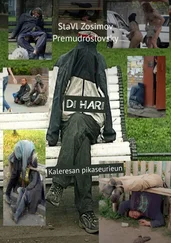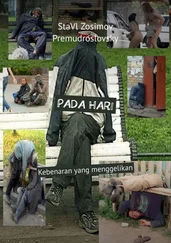As I watched the planes I would think about war. War was the midnight raids and lost patrols I read about in Adventure and Wizard . It was Banzai! and Hande hoch! and being wounded but still crawling forward to lob your grenade into the machine gun nest. It made boys like me into men like my teachers and the shopkeepers of North End Parade, who’d all seen and done wartime things yet mysteriously chose to mark physics homework or sell pork chops to my mother. All the fathers carried war around with them every day, buttoned up tight inside their shirts. War was secret knowledge. But war had changed since the fathers went to fight. Now it was about the planes that made the cutlery rattle on our Formica kitchen table, planes that flew so high they couldn’t be seen or heard from the ground.
I had good ears; Mum always told me so. Perhaps I’d be the first to hear it: a drone, a faint humming in the empty sky, out of which would tumble the Bomb. I tried to picture everything , which I hoped might be done by listing all the things there were until they ran out. I always failed, which made it even scarier. Each time you thought of anything, anything at all, you discovered it, too, was part of everything , which was what would blow up if they dropped the Bomb. I tried out survival techniques in my imagination. Ducking, crawling under the kitchen table, running down into the cellar we didn’t have. Even the tube trains went above ground at Ruislip. Where would we go?
My dad was frustratingly inscrutable on the topic of how we’d survive the Bomb. Whenever I asked (which was often) he told me not to worry and went back to the paper. I interpreted this as courage, but wasn’t reassured. There was something closed about my dad, and it made me think he knew more than he was saying. What little I learned about his own war was extracted from my mum. He’d served on corvettes, escorting convoys across the North Atlantic. His ship was called HMS Primrose , which sounded disappointing to me, unmartial. He didn’t like to be seen without his shirt, even at home, because of the smear of livid red scar tissue that covered his left side, from hip to chest. There was a fire at sea,
was all Mum would say. I could never get her to tell me any more. I imagined my dad’s skin melting from the effects of the Bomb. Its searing fireball is as hot as the sun’s interior. . Radiation is particularly dangerous because it cannot be felt or smelled, tasted, heard, or seen. .
As I got older, I roamed around on my bike, discovering a world with no obvious center, an unfocused sprawl of i93os houses that gave way in surprising places to open fields where cows grazed or football goals stood waiting for Saturday league matches. The boundaries of this world were main roads. You’d come up hard against them, screaming with traffic, intimidating, uncrossable. The planes took off and landed. Sometimes I got up at night and opened kitchen cabinets to see if my mum was stockpiling enough canned food.
Parker’s Electrical stood at the end of a parade on a long straight road, next to a butcher, a florist, a funeral director and a junk shop, whose window was almost obscured by clutter. The junk shop was run by an Irishman called Kavanagh, who, for reasons I never discovered but probably amounted to nothing more than the standard English stew of race and class prejudice, was roundly hated by the other shopkeepers. Kavanagh was scruffy. His horse left droppings on the pavement. He was rumored to deal in stolen goods or pornographic pictures. When Dad came home from meetings of the North End Parade Traders Association, Mum would ask if they’d “come to any conclusions” about him. There was something sinister in her tone.
My brother, Brian, heard what was said about Kavanagh. Brian was two years older than me and I did what he said. One night, under his direction, I sneaked out of the house to the lock-ups round the back of the parade. Kavanagh’s was at the end and its wooden door was half rotten, a sad contrast to ours, which was royal blue and had the words “No Parking in Constant Use” neatly painted across it in white letters. Brian put his hands on his hips and used one of Dad’s words. “Disgraceful,” he said. He made me hold the flashlight while he wrenched out one of the rotten planks
and poured something from a bottle through the hole. I had to light the matches. It took two or three goes. As we ran away, a faint orange glow was coming from inside.
I lay awake listening for the fire engines, but they never came. The next day we went to see what we’d achieved. I was nervous. If there was a detective, he might be waiting for us to return to the scene of the crime. The door was charred, but otherwise the lock-up was intact. There was no sign of a detective, or of the devastation I was expecting. Brian was disappointed. I pretended I was too.
A couple of months later, just after my thirteenth birthday, Kavanagh’s closed down. The man and his junk disappeared, leaving an empty shopfront, its glass whitened by smeared arcs of windowcleaner’s soap. I had visions, influenced by Saturday matinées, of my father and the other shopkeepers taking Kavanagh “for a ride.” An unshaven man in a greasy gray jacket, falling to his knees out in the woods.
Kavanagh’s departure did nothing to appease my father’s anger. He was always up in arms about something or other — rude customers, articles in the paper. It was a trait my brother had inherited. Brian became a very angry man, a shouter in saloon-bars, a puncher of walls. There were evenings when we’d sit round the kitchen table, eating the food Mum had cooked, and she would try to listen to The Archers while Dad held forth about Malaya or the West Indians or de Gaulle, banging the table with the heel of his hand while Brian and I competed to express our vocal agreement.
Then there was Mum, who had her good days and the other kind. One weekend I stood in the garden with a spool of copper wire in my hand. My father, cigarette hanging out of the corner of his mouth, was up a stepladder by the back fence. I remember him silhouetted against the sun, a smoky black outline, the wire gleaming as he looped it over the trellis. Mum ran out of the house, wiping her hands on her apron and shouting at us in a high, strained voice: “What are you doing? For the love of God, what are you doing?”
“It’s for my radio, Mum,” I told her. “We’re testing my radio.” The wire hung slack over the bare branch of the elder tree, running back down into the spool, into my hands. Crystal sets needed long aerials. We were going to set it up so I could listen in my bedroom; it had to go all the way back to the house and through the upstairs window. My mother snatched the spool from me. Strands of hair fell across her face, which was red. So were her hands, from the washing-up. She was red and white, her breath making a little cloud in the cold as she screamed at me. Another smoking head. “You’ll electrocute someone! Burn the whole house down! We’d be trapped! Don’t think you’ll get away with this!” This last sentence was spat at my father, who climbed down the stepladder, telling her to shut up and go inside. Grabbing her by the arm, he pushed her back into the house. It was no use telling her my crystal set didn’t use electricity, just the energy of the radio waves. When Mum was in one of her moods, she didn’t listen. She broke things in the kitchen. She went to bed and cried. Twice that year (the year I was nine) she phoned the police and told them stories about Dad. The first time, when they got to our house, they wanted him to go with them. He had to explain for ages before they went away.
Nothing was ever said in our house about my mum’s “moods.” As far as I know, she’d never seen a psychiatrist or talked to anyone else about why she found the world such a hostile place. She didn’t really have friends, at least not the kind who did more than say good morning when they saw her at the front gate. The local GP kept her supplied with pills, a row of little bottles that took up a whole shelf in the medicine cabinet. On a good day she’d go about her business with slow deliberation, like someone moving under water. On a bad one I’d sometimes find her stalled completely, staring straight ahead, a wooden spoon or a tea towel in hand and an expression of bafflement on her face. Speak to her and she’d come to life again, shuffling round the kitchen as if nothing had happened.
Читать дальше












